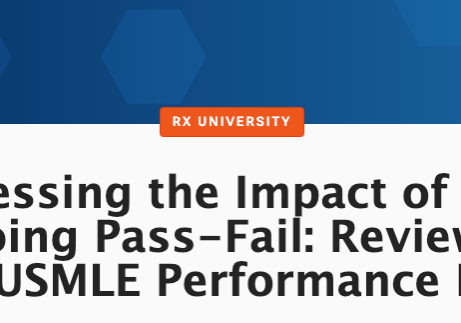By Sasmit Sarangi
 As an international medical graduate, one thing that is extremely important for your residency application is the extent of your US clinical experience (USCE). Traditionally, clinical electives are the most valuable kind of clinical experience. You get unfettered access to a patient as a medical student and you get to see the nitty-gritty of the US clinical system. However, if you have already graduated from medical school, you are limited to doing observerships where your ability to interact fully with patients is limited to a certain extent. The following is a brief list that you should definitely keep in mind before and during your observerships or clinical electives.
As an international medical graduate, one thing that is extremely important for your residency application is the extent of your US clinical experience (USCE). Traditionally, clinical electives are the most valuable kind of clinical experience. You get unfettered access to a patient as a medical student and you get to see the nitty-gritty of the US clinical system. However, if you have already graduated from medical school, you are limited to doing observerships where your ability to interact fully with patients is limited to a certain extent. The following is a brief list that you should definitely keep in mind before and during your observerships or clinical electives.
- Target your USCE: It is always a smart choice to schedule your clinical experience at a program that you would want to be a part of in the future. Some programs strongly prefer to take a candidate who has clinical experience at their center and also has letter of recommendations (LORs) from attendings who work there. This helps the program in knowing you better and understanding your strengths.
- Avoid commercial agencies that arrange for USCE: Several commercial agencies exist that can arrange for an observership at a private practice (for a hefty fee). These paid experiences are mostly at a private clinic where the physician receives a fee for hosting you. Any LORs that you get from the time spent here will not be viewed as an unbiased account of your abilities (due to the conflict of accepting a fee). Most of the physicians in these private practices would most likely be unknown in academic circles as well, thus, further negating any advantages in the residency application process.
- Understand the limitations of observerships: As an observer you are not allowed to perform important tasks such as examining patents and counseling them. Violating these rules can have serious consequences and it is important to respect them at all times during your observership. Another important limitation is that some residency programs don’t consider observerships as USCE and as a result might not consider your residency application (if they have a compulsory USCE requirement).
- Punctuality and dedication: It is very important to be actively involved in the clinical process during your USCE. Try to not just meet expectations but to exceed them with a generous margin. At the end of your tenure you will be evaluated and this could also reflect in your LORs from the institution.
- Research: If you are interested in research or you want to increase your academic exposure, try to become a part of ongoing research projects during the period of your tenure. This could help you develop a stronger academically inclined residency application. Research experiences with clinical faculty can also help demonstrate your interest in a particular program/specialty and your work ethic – two important components for evaluation that can be hard to judge on the basis of an observership alone.
- Scheduling your Step 2 CS: The Step 2 CS exam is based around fundamental clinical expectations from any physician practicing in the US. Once you have received exposure to the US clinical system, and while you are present in the US, it might be the ideal time to schedule your Step 2 CS exam.



